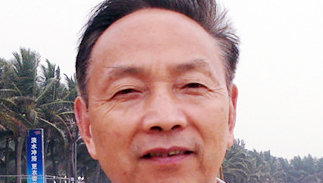ZHANG JUE: Book evaluation overly reliant on publisher’s popularity
 When evaluating books, we cannot judge the academic level of a book only by the popularity of the publisher just as we cannot decide the academic value of a paper based on the ranking of the journal.
When evaluating books, we cannot judge the academic level of a book only by the popularity of the publisher just as we cannot decide the academic value of a paper based on the ranking of the journal.
Though there is no catalogue of core publishing houses that serves the same function as the Core Periodical Catalogue, evaluators tend to follow the same patterns. In fact, plenty of readers and assessment experts regard the publisher as the sole criterion of the quality of a book.
Currently, publishing houses are categorized at the municipal, provincial and national levels in line with the administrative system instead of academic value. This, however, has not stopped people from evaluating a book according to the prestige of the publisher.
My personal experience has given me some insights. I published the Collation, Annotation and Comment on Han Feizi through the Intellectual Property Publishing House. One of my readers said that he read more than 30 pages and found no characters misprinted and that the printing is of high quality, but he questioned why such a good book was not published by larger presses like the Shanghai Ancient Books Publishing House and the Zhonghua Book Company. Obviously, some readers believe that the quality of a book is necessarily related to the status of the publisher.
The same is true for some experts. For instance, experts in charge of the revision of the Records of the Grand Historian published by the Zhonghua Book Company in 2013 referred to two books that were published by the Shanghai Ancient Books Publishing House but are full of typographical errors.
Just as not all papers published in core journals are of the best quality, not all books published by popular presses are among the best. Even though some books have been already recognized as the best, it is still likely that defects can be found in them. In my book, I criticized Liang Qixiong’s A Simple Interpretation of HanFeizi, which was published by the Zhonghua Book Company.
Conversely, not all books published by small, unknown presses are of low quality. And it is vital for us to abandon such prejudices to avoid the appearance of the “Core Press Catalogue.” Of course, it would be hard to resist the trend if a “Core Press Catalogue” were to be truly established.
The lack of such a catalogue is both a disadvantage and an advantage. On one hand, due to the lack of accessible assessment tools, some nonprofessional evaluators have no recourse but to simply cancel book evaluation. As a result, books worthy of appraisal have not received proper evaluation.
On the other hand, other nonprofessional evaluators have turned to peer review, which has helped ease the burden on evaluators and created an opportunity for books to be evaluated.
In terms of establishing a book evaluation system, we should conform to one principle, namely to subject books to the test of social practice and history. Only books that have stood the test of time and have been repeatedly reprinted are the best. It is a pity, however, that impatience plagues academic evaluation nowadays and only recently published books are evaluated.
For instance, the recent seventh Outstanding Scientific Research Award of Institutions of Higher Education (Humanities and Social Sciences) reviewed books published from Jan. 1, 2011 to Dec. 31, 2013. How can we decide the academic value of the books that have been tested for only three or four years? Except for books that have become a hit through hype, books usually do not have influence or social effect in a short time. If a book is evaluated when there is no obvious influence or social effect, evaluators who are not professional experts may look to the popularity of the publisher, which would lead to inaccurate book evaluation.
In my opinion, though it is unnecessary to undergo a test as long as the Nobel Prize, at least a 10-year time period is needed before evaluating a book.
Zhang Jue is from the School of Humanities at the Shanghai University of Finance and Economics.
